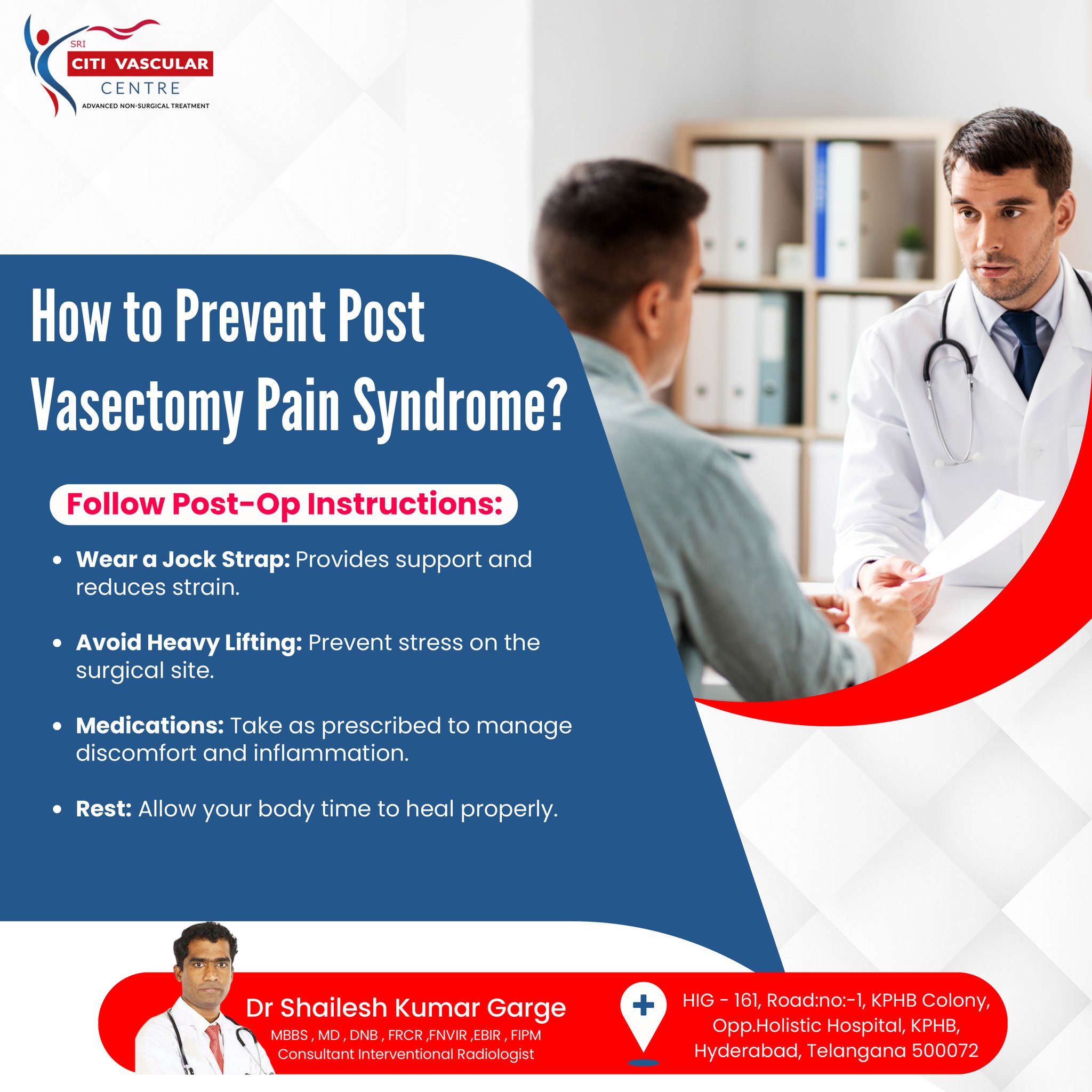
Are you considering a permanent solution for male birth control in Hyderabad? Vasectomy is widely recognized as the most reliable and effective method for men who want long-term contraception. In this article, we’ll explain why vasectomy stands out, how it works, and why Citi Vascular Hospital is the best choice for your procedure.
A vasectomy is a simple, minimally invasive surgical procedure that blocks the tubes (vas deferens) carrying sperm from the testicles. This prevents sperm from mixing with semen, making pregnancy impossible after the procedure.
Vasectomy is over 99% effective at preventing pregnancy, making it more reliable than condoms, withdrawal, or male birth control pills.
Unlike temporary methods, vasectomy offers lifelong contraception with a one-time procedure.
No daily pills, injections, or repeat doctor visits are needed after recovery.
Modern no-scalpel vasectomy techniques mean less pain, fewer complications, and a fast return to normal activities.
Vasectomy does not affect testosterone levels, libido, or sexual pleasure.
Expert Opinion
“Vasectomy is a safe, simple, and permanent solution for men seeking reliable birth control. It offers peace of mind and freedom from daily contraceptive worries.”
— Dr. Shailesh Kumar Garge, Consultant Vascular & Interventional Radiologist, Citi Vascular Hospital, Hyderabad.
Conclusion
Vasectomy is the most reliable, safe, and permanent form of male birth control. If you’re ready for a worry-free solution, trust Citi Vascular Hospital and Dr. Shailesh Kumar Garge for expert care in Hyderabad.
Book your consultation today and take control of your reproductive health!
Q1: Is vasectomy painful?
Most men experience only mild discomfort, and pain is well managed with local anesthesia.
Q2: How long does recovery take after vasectomy?
Most men return to work and normal activities within 2-3 days.
Q3: Is vasectomy covered by insurance?
Some insurance plans cover vasectomy. Check with your provider and hospital billing team.
This article is for informational purposes only and does not substitute professional medical advice. Always consult a qualified healthcare provider for diagnosis and treatment.